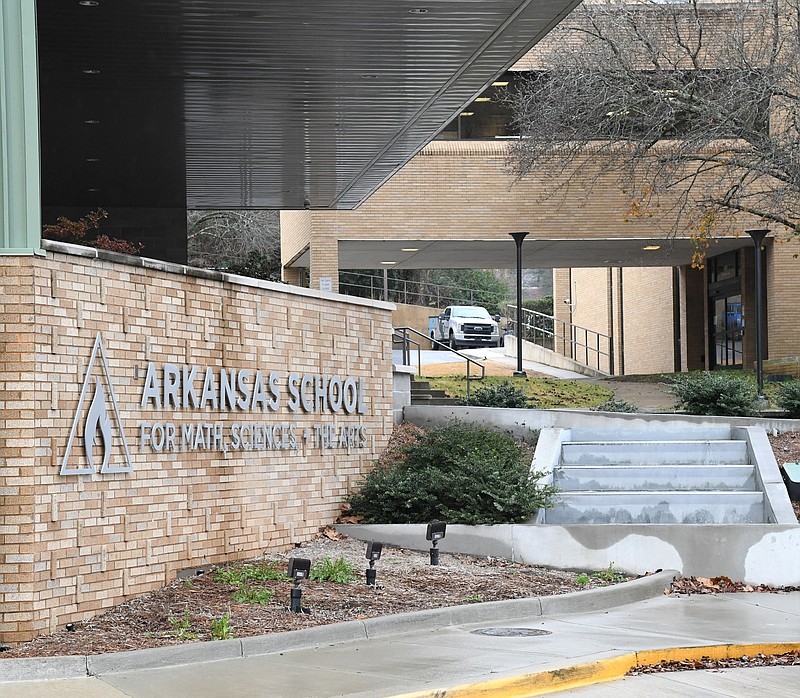The Arkansas School for Mathematics, Sciences, and the Arts recently received a $10,000 grant from the Women's Foundation of Arkansas to help increase opportunities for female students in high school computer science programs.
The school will use the grant to host an Equity in Computer Science Summit for school districts across the state in 2022, while focusing on strategies and tools to increase female student enrollment within computer science and provide them a path from college to career.
"The Women's Foundation of Arkansas is invested in intentionally and strategically increasing the number of girls in STEM courses, which puts them on the path to high-demand careers and helps them attain economic security as women," WFA Executive Director Anna Beth Gorman said in a news release.
"ASMSA is taking an innovative approach to this work through its Equity in Computer Science Summit, and we are proud to support this initiative that encourages and empowers girls across our state to participate in STEM opportunities."
ASMSA Director Corey Alderdice said the school has been fortunate to work with WFA, which is the only statewide organization focused on academic and economic development for women and girls across the state.
Video not playing? Click here https://www.youtube.com/embed/mrhtczyFR0I
"Much like ASMSA's commitment to achieving the governor's vision of expanding computer science opportunities, the WFA has been at the forefront of that conversation as well through things like their Girls of Promise initiative, Tech for Good, their partnerships within the technology sector, and so to have an organization like the WFA who shares that same level of passion for this topic creates a great space for partnership," Alderdice said.
The ASMSA Coding Arkansas' Future initiative works with school districts to build their capacity in computer science education. Alderdice said this is not only about offering courses in coding, but also helping teachers grow their understanding of computer science.
"One of the pieces that we see as missing is how districts work to actively recruit students to take those courses," he said.
Even though the number of students taking computer courses has grown exponentially in the state through Gov. Asa Hutchinson's initiative, there is still a sizable gap in female versus male representation, Alderdice said.
According to the Arkansas Department of Education, about 70% of students taking computer science classes are male and 30% are female. While this mirrors national trends, he said it also represents one of the areas Arkansas needs to grow.
The program's goal is to train 15 school districts, from various parts of the state, in which school administrators, counselors and computer science teachers will learn how to increase interest and enrollment in computer science courses. Specifically, it will focus on the recruitment and retention of female students in middle school, junior high and high school computer science classes.
The summit will act as an opportunity to address the need to educate, nurture and encourage young women in computer science. While exposing them to such research areas as robotics, engineering and security issues to game development, classroom activities will incorporate art, sports and other subjects.
"With this computer science equity summit, what we're working toward is teams of educators from districts across the state learning about the importance of equity, how you position programs so that female students who often see these experiences as being male-dominated can find a space for themselves in them, and how all that combines together to create a culture that is inclusive for all parties to explore computer science," he said.
Alderdice noted the importance of the guidance counselors and school administrators in addition to the classroom teacher. Each, he said, plays a vital role.
"Certainly the teacher on the ground is essential, because they're the one delivering the content," he said. "They're the day-to-day point of contact for the student. The guidance counselors are decision-makers. They're taste-makers, I guess you could say, even in that they're the ones that are helping students find their place -- build their overall narrative as it pertains to both college and career down the line."
This also helps them ultimately decide what classes they want to take, he said, noting the school administrators help shape the culture, goals and vision of a school.
"When all three of those folks are in alignment, understand what's at stake, and what the opportunities are, that's where you begin to see the needle moved on progress in this," he said.
Much more than taking computer science classes, Alderdice said the learn to code movement is ultimately about college preparation, workforce development, and rising to the challenges -- as a state -- of the innovation economy.
"Needless to say, there are lots and lots of tech industry jobs available nationwide, but also acutely here in Arkansas as well too and that's only forecast to grow over time," he said.
"So it makes a tremendous amount of sense that we don't want to leave half the population off the table when it comes to these, you know, quality jobs that are high paying and excellent careers as well. So it's not just about an investment in education, it is very much an economic development commitment as well."
